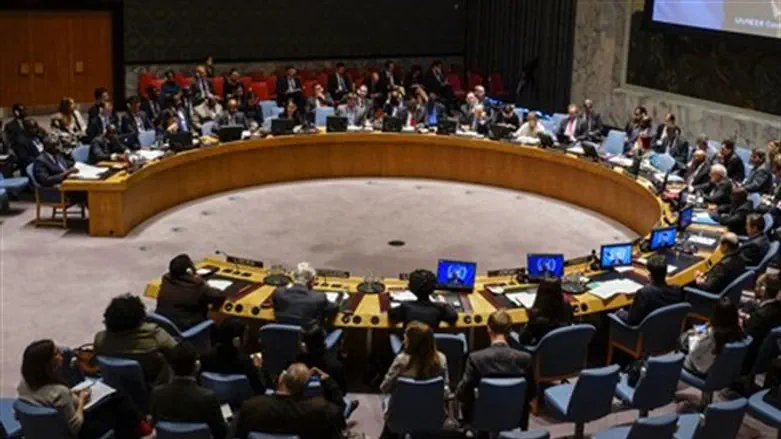
The UN Security Council is expected to hold-closed door talks on North Korea's test of a sea-launched missile, diplomats said Thursday, according to AFP.
North Korea confirmed on Thursday that it had successfully tested a new type of submarine-launched ballistic missile (SLBM) a day earlier.
The country’s official news agency, KCNA, said leader “Kim Jong Un sent warm congratulations” to those who had carried out the successful test-firing of the new type of SLBM, called Pukguksong-3.
The demand for closed-door talks by the Security Council was made by Britain, France and Germany, as the United States and North Korea prepare to resume nuclear talks this week.
Initially slated for Friday, the talks are now expected to take place early next week due to scheduling constraints, diplomats said, according to AFP.
The European nations consider the test a violation of UN resolutions, and pressed the US delegation to have the council take it up, one diplomat said.
"The Americans do not want a formal meeting" so the Europeans asked for a closed-door session, said another diplomat, also speaking on condition of anonymity.
The latest launch was North Korea’s ninth since US President Donald Trump and North Korean leader Kim Jong Un met at the heavily guarded Demilitarized Zone between the two Koreas in June.
Talks between the US and North Korea on denuclearization continue to stall, having broken down after the failed summit between Kim and Trump in February in Vietnam.
Trump has said he's "not happy" about North Korea's persistent testing of short-range missiles but denied the launches violate any agreement.
In late August, Britain, France and Germany sought a meeting of the Security Council after North Korea tested a new "super large" multiple rocket launcher but in the end those three members of the council simply issued a statement calling for continued international sanctions against Pyongyang.
North Korea is under three sets of UN sanctions adopted in 2017 in an effort to force it to give up its nuclear and ballistic weapons programs.
The sanctions limit North Korea's oil imports and impose bans linked to its exports of coal, fish and textiles.
